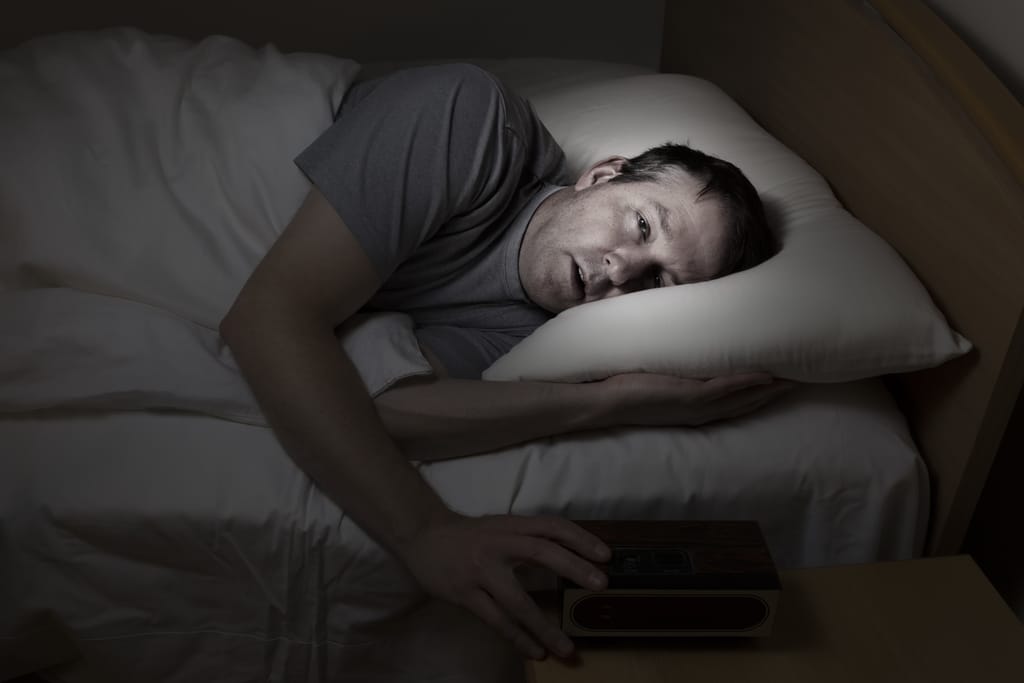What is insomnia?
Insomnia is a sleep disorder that can make it difficult to fall asleep, hard to stay asleep, or lead you to wake up very early. You may have this problem if you have trouble falling asleep, staying asleep, or if you get up during the night and cannot fall back asleep. It can leave you feeling drained and stressed.
Insomnia is a common problem. One in three adults experiences issues with it. It can affect people of all ages, but is often common in older adults. There are many possible causes. Some individuals have it because of a medical problem or the medication they are taking. Others have it because of stress and worry, or trouble with their environment, such as noise, light, or temperature.
Insomnia can have several adverse effects on your health and well-being. People with this problem are more likely to have setbacks or injuries. They may likewise be more prone to develop cardiovascular disease, respiratory complications, or diabetes. The sleep disorder can also bring on mood problems, such as anxiety and depression.
If you are having problems with insomnia, there are things you can look at to help. See your doctor for a diagnosis and treatment. You can also try many self-help methods, including cognitive-behavioral therapy (CBT) and lifestyle changes.

Causes and Effects of insomnia
Doctors define insomnia as a difficulty falling or staying asleep. Various factors can cause it, including stress, anxiety, pain, medications, and sleep disorders. It can have several negative aftereffects, including fatigue, irritation, difficulty concentrating, and reduced quality of life. In severe cases, it can lead to depression or thoughts of suicide.
There are several things people can do to improve their sleep, including establishing a regular sleep schedule, avoiding caffeine and alcohol before bed, and engaging in relaxation techniques. If it persists, seeking professional help may be necessary.
Natural Remedies
Establish a Sleep Routine: Having a consistent sleep routine can help you relax and fall asleep faster. Try to go to bed and wake up at the same time each day. Avoid naps in the afternoon and limit the time you spend in bed.
Exercise Regularly: Regular exercise can help promote better sleep. Try to get at least 30 minutes of exercise each day. Avoid exercising too close to bedtime, as this can make it more difficult to fall asleep.
Reduce Stimulants in the Evening: Avoid consuming caffeine, alcohol, or nicotine in the evening. These stimulants can interfere with your sleep.
Avoid Stress before Bedtime: Stress can make it difficult to fall asleep. Try to do some relaxation exercises before bed, such as deep breathing or stretching.
Create a Comfortable Sleep Environment: Make sure your bedroom is dark and quiet. Make sure the temperature is comfortable and that your bed is comfortable. Sleep experts recommend a room temperature between 61 and 67 degrees for optimum sleep. Try to avoid watching television or looking at a bright screen before bed.

Over-the-Counter Aids
Over-the-counter sleep aids can be an effective way to treat insomnia, but they should be used cautiously. Taking them without consulting a doctor can be risky, as they may cause interactions with other medications or side effects that can be dangerous.
One advantage of over-the-counter sleep aids is that they are readily available and relatively inexpensive. They are also easy to use, with no need for a prescription or doctor’s visit. In addition, many over-the-counter sleep aids contain natural ingredients, such as melatonin, valerian, and chamomile, which can be beneficial in treating insomnia.
There are some drawbacks to using over-the-counter sleep aids. The main concern is that they may cause side effects and interactions with other medications. These may include dizziness, headaches, nausea, and dry mouth. In addition, over-the-counter sleep aids are not regulated by the Food and Drug Administration (FDA), so their safety and effectiveness may be unknown.
There is also a risk of dependency in some cases, as the body can become accustomed to the effects of the drug and require it for sleep.
Stress-induced insomnia
Stress-induced insomnia is a common problem, but some steps can be taken to combat it. First and foremost, it is essential to create a relaxing sleep environment. This can be done by making the bedroom dark, quiet, and cool. It is important to avoid activities that stimulate the senses before bed, such as watching television or using a computer or smartphone.
A soothing bedtime routine, such as reading, journaling, or listening to calming music, may also be beneficial. It is also essential to manage stress levels during the day. Regular physical activity earlier in the day is a great way to reduce stress and promote better sleep.
Relaxation techniques such as deep breathing, meditation, and yoga can help to lower stress and induce sleep.
It is also essential to establish a consistent sleep schedule. Going to bed and waking up at the same time each day helps to regulate the body’s internal clock and can lead to improved sleep.
Talking to your doctor
Here are some tips for preparing for and having a productive discussion with your doctor about your insomnia:
Make a list of your sleep habits. Track your sleep patterns for several weeks, noting the time you go to bed, the time you wake up, and how many hours of sleep you get each night. It may also help to take note of any activities you do before bed, environmental factors that make it harder to sleep, and any medications you take that could be impacting your sleep.
Make a list of your symptoms. Include any physical, mental, or emotional symptoms you are experiencing due to your insomnia.
Write down any questions. It can help to have a list of questions prepared ahead of time. You may want to ask your doctor about possible causes of your insomnia, the best treatment options for your specific situation, and ways to improve the quality of your sleep.
Talk openly and honestly. Be sure to give your doctor a complete picture of your symptoms and sleep habits. This will help them better assess your situation and determine the best action plan.
Conclusion
Insomnia can be a crippling condition, causing fatigue, difficulty concentrating, and irritability. While there are many potential causes, ranging from depression to medical conditions, treatments available can help. If this problem affects your quality of life, it is essential to seek help from a healthcare professional. Of course, a more comfortable mattress or cozier, healthier bedding may help as well – and we can help you with that!
Reference
- Insomnia – Symptoms and causes. (2016, October 15). Mayo Clinic. https://www.mayoclinic.org/diseases-conditions/insomnia/symptoms-causes/syc-20355167
- Insomnia. (2000, January 1). WebMD. https://www.webmd.com/sleep-disorders/insomnia-symptoms-and-causes
- Insomnia. (n.d.). Johns Hopkins Medicine. https://www.hopkinsmedicine.org/health/conditions-and-diseases/insomnia